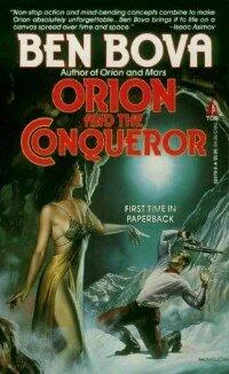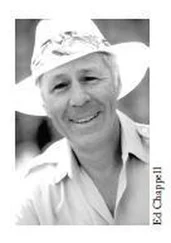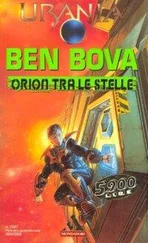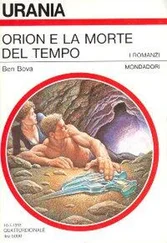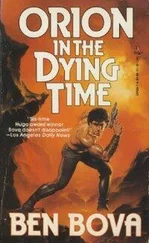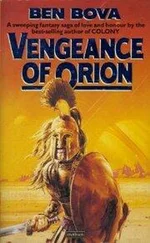“One c-c-cry from m-me and you’re a d-d-dead man,” Demosthenes stuttered.
“It will be the last sound you ever make,” Alexandros said.
“Wait,” I snapped. Turning to the Hindi, I said, “Who are you? Why are you here?”
“I serve the Great King,” he answered in singsong cadence. “I carry gold and instructions to this man here.”
“Gold and instructions from the Great King,” muttered Alexandros. “The man who preaches the glories of democracy over tyranny serves the Great King of the Persians, the tyrant who holds the Greek cities of Ionia in bondage.”
Demosthenes pulled himself to his full height, little taller than Alexandros. “I serve no m-m-master except the de-democracy of Athens.”
“This man says otherwise.”
With a lopsided smile, Demosthenes answered, “The Great K-King serves me, Alexandros. His g-g-gold helps me to fight your f-father.”
“Politics,” Alexandros spat.
“What do you know of politics, princeling?” Demosthenes shot back. Suddenly his nervous stuttering was gone, vanished in the heat of anger. “You play at war and think that conquest is everything. What do you know about ruling people, about getting free men to follow where you lead?”
“I will rule when my father dies,” said Alexandros. “And I will conquer all the world.”
“Yes, I see. You were born to be a ruler of slaves, like your tyrant father before you. All you have known all your life has been luxury and pleasure—”
“Luxury and pleasure?” Alexandros’ voice nearly broke. “I was raised like a Spartan helot. I can run twenty miles and live for weeks on roots and berries. My body is trained and hard, not a soft slug of a worm like you.”
“But all your life you have known you would be king one day. You have never doubted it. You have never had to wonder where your next meal would come from, or if you would have a roof over your head.”
“I’ve spent more nights in the open air than with a roof over my head.”
“What of it?” Demosthenes challenged. “I was born in poverty. All my life the only safety I have had has been from my wits. I have worked all my life, since earliest childhood. No one gave me a place at the table; I had to struggle to get where I am. No one named me prince and assured my future. I had to earn my position as a leader of Athens. And even today, even at this moment, my position can be taken from me. I have no security, no father to protect me, no wealth to shelter me from hunger and cold.”
“By the gods,” Alexandros almost whispered. “You’re jealous of me!”
“Jealous? Me? Never! Never! ”
I kept one eye on the Hindi. He was not armed, and he made no move toward the sword on the chest behind him. He seemed to be following the argument with intense interest.
“You envy my position,” Alexandros insisted. “You think that you should be a prince, instead of me.”
“Never!” Demosthenes repeated, so vehemently that I thought Alexandros had touched the most sensitive nerve of all. “I want no princes, no kings, no tyrants to rule over men. I want democracy, where men rule themselves.”
“Where men are swayed by demagogues such as yourself,” Alexandros said. “You want a nation of obedient idiots swept by emotion and your rhetoric. You want followers, slaves to your words.”
“And you want slaves outright!”
“Not so. The king of Macedonia is not a birthright, as you seem to believe, Athenian. The king must be elected—”
“By your army, yes, I know.”
“And our army is all the able-bodied men of the kingdom. How does that differ from your democracy?”
“Because your army will elect the son of the old king, and well you know it!”
“They will elect the son of the old king if they deem him worthy. Soldiers do not willingly elect fools to lead them. But from what I’ve seen of your democracy, anyone can be a leader if he promises enough and has enough fancy words to stir the mob.”
Demosthenes took in a deep, shuddering breath. Eyes squeezed shut, he said in a low voice, “You represent the power of the sword and the privilege of birth. I represent the will of the people. Tomorrow we will shall see which is stronger.”
“If you live to see tomorrow,” said Alexandros.
Demosthenes’ eyes popped open. “I should h-have expected n-n-nothing less from the s-son of Philip. You would kill an unarmed m-man.”
“I would decapitate a poisonous snake.”
“That’s not why we came here,” I reminded Alexandros. “And making a martyr of this man will only make the Athenians fight harder.”
Alexandros glanced at me, then returned his gaze to Demosthenes. “Where will the Athenians be placed in tomorrow’s formation?”
“On the far left,” said the Hindi, before Demosthenes could open his mouth. “The Thebans will be on the right, which will be the stronger side.”
Alexandros blinked at him.
“I will tell you whatever you wish to know, so long as you do not kill this man.”
“Why?”
The Hindi made a sad little smile. “It is my religion. No man should kill another, or allow one to be killed if he can help it.”
“What kind of a religion is that?” Alexandros wondered.
“It is The Eightfold Path. The Way of the Buddha.”
I asked, “Do you know all the dispositions of the troops for tomorrow’s battle?”
“Oh yes.”
“Can we believe that?” Alexandros demanded.
“I am the representative of the Great King,” he replied easily. “My lord Dareios and his advisors will want to know every detail of tomorrow’s battle. I am to carry that information back to them.”
“You’ll give it to Philip and his generals first,” said Alexandros.
“Willingly, if you will spare this man.”
Curious, I asked him, “You will help us to slay thousands tomorrow if we spare this one individual?”
“Tomorrow you will fight and thousands will be slain no matter what I do. I have no control over that. But if I can save the life of this one man, I must do it. That is the Way.”
I turned to Demosthenes. “Can we trust you to remain silent while we take this man to our camp?”
He glanced at Alexandros, still brandishing his sword, then nodded.
“You may trust this demagogue, Orion,” said Alexandros, “but I don’t.”
Sheathing his sword, Alexandros went to the armor standing in the corner of the tent. He pulled the straps from the cuirass and greaves and used them to bind Demosthenes hand and foot. Finally he stuffed a gag in the orator’s mouth and tied it with a strip of cloth.
“Now we can trust him,” Alexandros muttered, “for a little while.”
Standing by the blue shield with its lettering, Alexandros looked back at Demosthenes, lying helpless on the bare ground.
“With Fortune,” he read grimly. “I will look for you on the battlefield tomorrow.”
Then we left with the Hindi and started back toward our own camp.
The Hindi’s name was Svertaketu. “It is acceptable for you to call me Ketu,” he said modestly as we made our way through the predawn shadows back to the Macedonian camp. “The words of my native language are difficult for your tongues to pronounce.”
All the way back to the camp Alexandros pressed Ketu for information about his native land.
“Tell me of the lands beyond the Persian Empire,” the young prince asked as we hurried across the grassy, rolling ground between the camps, where tomorrow’s battle would be fought.
“It is so large that it has many names,” replied Ketu. “Indra, Hind, Kush—many names and principalities. A far land, very large, very distant. A great, great empire with vast palaces and temples of gold. And lands beyond that, too. Cathay is an even larger empire, far to the east. It stretches as far as the great eastern ocean.”
Читать дальше
